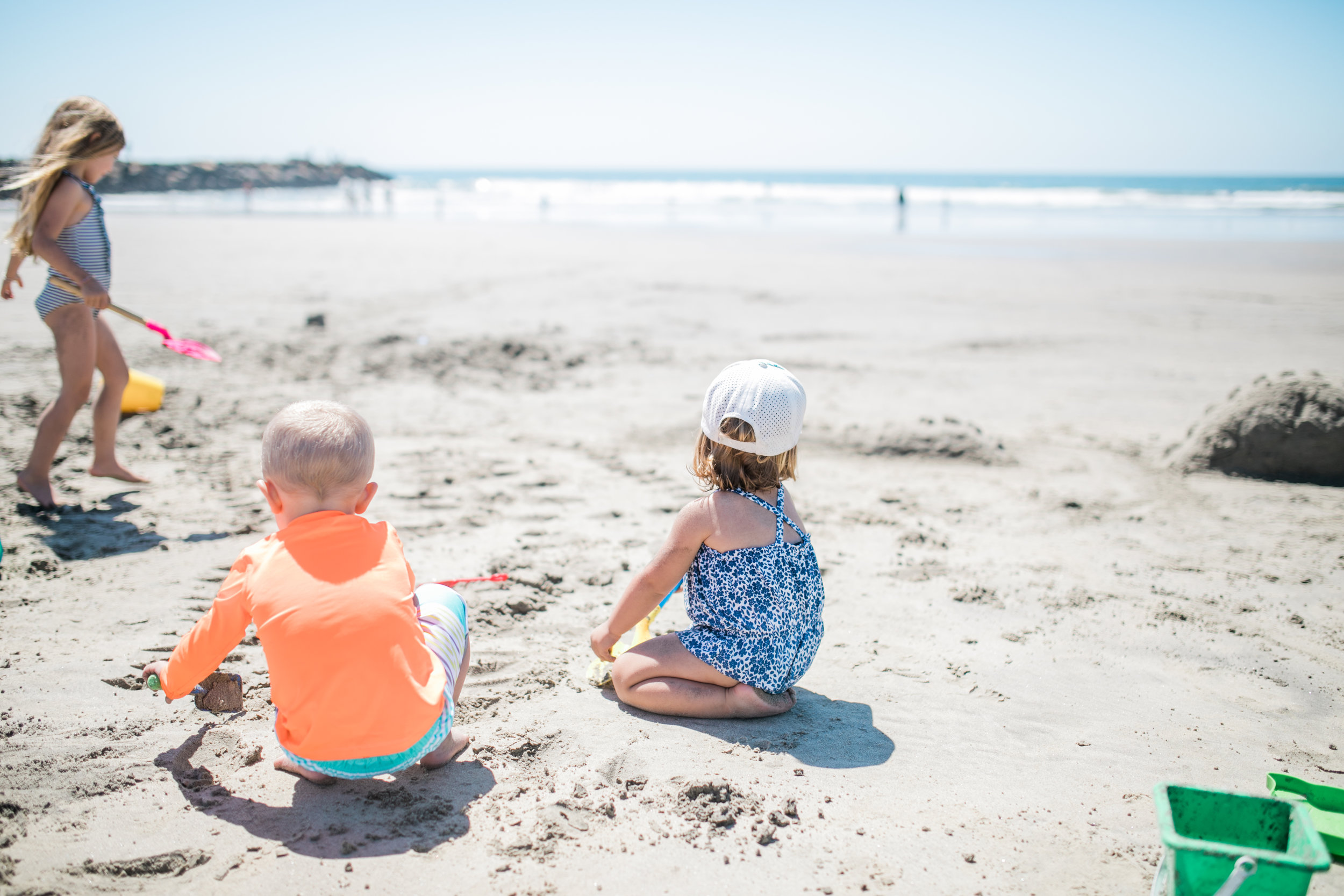5 Speech and Language Skills You Can Teach on The Beach
During these lazy summer months, many parents struggle with how much they should push their children to prepare for the new school year (just a few weeks away!). You want your children to avoid the ‘Summer Slide’ and be on their A-game when they return to school. But you also want them to enjoy your summer break - as all kids should. Instead of struggling with your child to open a summer workbooks, try these 5 activities that support speech, language, reading, and writing skills during your family vacation this August!
Enlist your child in the planning and preparing of daily activities:
Engage your children in the process of preparing for a trip. By doing so, you are supporting you child’s executive function skills, such as planning, organizing, decision making, predicting, problem solving. These are language-based skills that will help your child exceed expectations when they return to school in the fall. Talk with your child about where you are going, and ask them to make a list of what items you need to bring. Support your child as they complete their checklist and pack their own bag. Model problem solving strategies if they can’t find a desired item. Opportunities for language modeling while planning and preparing are endless.
2. Play ‘Road Trip Games’ Throughout your Trip:
Games such as “I Spy,” “The Name Game,” and “20 Questions” not only entertain your children in the car, but can support your child’s speech and language skills throughout a family vacation.
Is your child working on a specific speech sound or learning their letters? Play I-Spy and only “spy” items that begin with the target sound. Another great game is The Name Game, in which one player says a name of a person they know and the next person has to say a name that starts with the final letter of the previous name. This activity targets letter knowledge and phonemic awareness skills.
Are they working on asking and answering questions? Play 20 Questions or Heads Up.
Play Categories to work on vocabulary! Pick a category and take turns listing as many items as you can within the category in 1 minute.
Try I’m Going on a Picnic to work on auditory comprehension and memory skills.
3. Build Together!
Build a sand castle, dig a hole, or a build a fort/ tent together. When you build together, you work on executive function skills such as problem solving, planning, following directions; language skills such as sequencing, vocabulary, and multi-step directions; and social skills, such as flexible thinking and cooperation. Talk about what materials you need and where to get them. Come up with a plan for how you want the final product to look, and encourage your child to collaborate with their siblings or friends. Talk about each step as you execute the plan, and show off your final product!
4. Use Seashells for Arts and Crafts:
Arts and crafts are a great way to engage your child while supporting their speech and language skills. Your children can collect a variety of seashells (or any other interesting objects you find on your family vacation), and compare and contrast them. They can use markers, paint, glue, beads, etc. to decorate them. They could even set up a small stand and sell them as decorations or ornaments! Throughout all of these activities, they can work on following directions, descriptive vocabulary, asking and answering questions, and using language to work as a team.
5. Write about your trip:
At the end of the day or the end of the week, write a letter, postcard, social media or blog post about your trip. Writing can be one of the hardest activities to get your child to do while they are out of school. This is a great way to encourage them to write about something that is meaningful and exciting to them.





